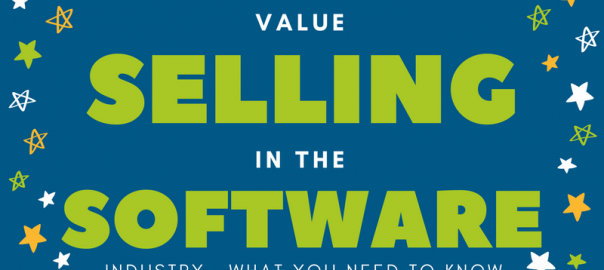The core idea of “value selling” is giving your customers more than what they expect from their purchase – providing products and services that generate returns well beyond the price paid. This is true in any industry, but is especially relevant when it comes to software sales. Everything from smartphones to the complex computer systems that control the critical functions of large companies rely on software.
Since software is so prevalent in your and your customers’ daily lives, and since it is so important to the profitable functioning of a business, the success or failure of a company can hinge on buying, using, and deriving value from the proper software. With the following value selling concepts, you can provide genuine assistance to your customers while positioning your own software business to thrive.
- You add actual value: This seems to be a given, but a software sales company must be careful that what is sold to the customer adds genuine value beyond the transaction. It may be tempting to add more features or components to a software package, for example, but if the customer won’t use those extra features, or will use them only rarely, they won’t represent actual value for the customer. Sometimes value selling is best manifested in selling less while ensuring the products and services being sold are truly adding value for the customer.
- Proper value selling builds trust and rapport: Customers who feel they cannot trust your company, or who aren’t able to “connect” with you at a professional level, will take their money elsewhere. Part of the value you add should be a high level of trust and reliability. By giving your customers what they need and what is effective, backed up by useful information and advice, you’ll quickly build a trusting relationship. If your products and services have been proven to work, you automatically have an advantage over most competitors.
- Your products and services provide good ROI: Your customer needs a good business case for purchasing your offerings, and as part of the value you add, you should be able to provide data on expected return on investment. The numbers should reflect where within the customer’s operations your software solutions will improve revenues or decrease expenses. Your data should also show how your offerings are more accurately seen as an investment rather than an expense.
- Your products and services must solve problems and relieve pain points: Your offerings should solve the problems you and the customer have identified. You should not add to your customers’ problems by selling them more than they need, something that won’t work as promised, or even something that is not quite right. If your added value includes reduced stress and peace of mind from pain point relief, your customer will be delighted and grateful and is likely to feel obligated to you.
- Your value includes education/training, support, and follow-up: One of the most common and most beneficial of value-added elements is training, education, and follow-up. Build a level of training and education into your sales package to ensure the users will be competent in using the software you sell, but also offer additional higher-level training. Provide a base level of support along with additional support and service packages at other levels your customers can purchase as needed.
Value selling lets you not just solve your customers’ problems but also impress them with your commitment to their success.
Business & Finance Articles on Business 2 Community(60)
Report Post









